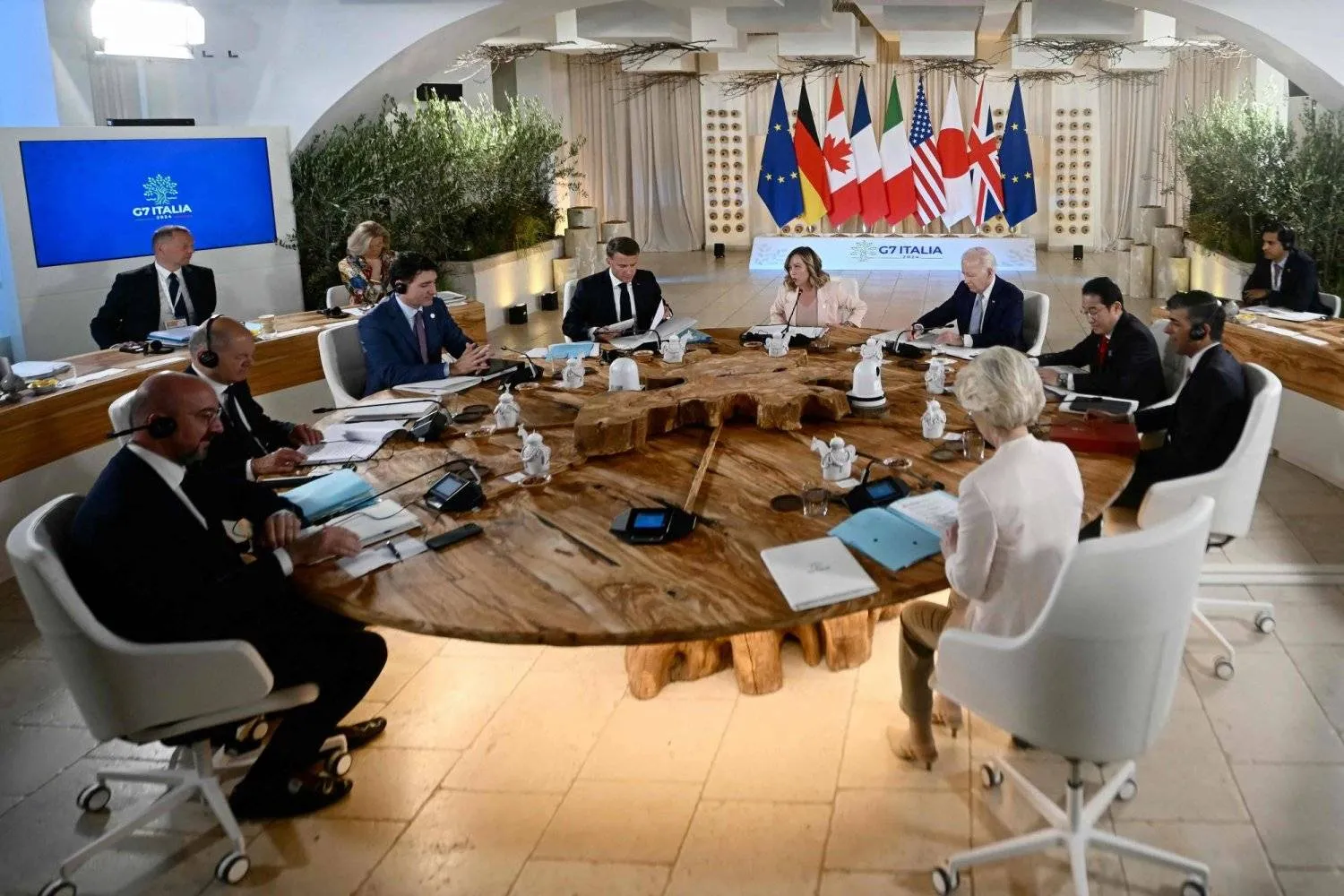Leaders of the Group of Seven wealthy democracies have agreed to engineer a $50 billion loan to help Ukraine in its fight for survival. Interest earned on profits from Russia’s frozen central bank assets would be used as collateral.
Details of the deal were being hashed out by G7 leaders at their summit in Italy. The money could reach Kyiv before the end of the year, according to US and French officials.
President Joe Biden told reporters at a news conference Thursday that the move was part of a “historic agreement.” Ukraine's president, Volodymyr Zelenskyy, said providing a loan through Russia's assets "is a vital step forward in providing sustainable support for Ukraine in winning this war."
Here's how the plan would work:
Where would the money come from? Most of the money would be in the form of a loan mostly guaranteed by the US government, backed by profits being earned on roughly $260 billion in immobilized Russian assets. The vast majority of that money is held in European Union nations.
A French official said the loan could be “topped up” with European money or contributions from other countries.
A US official who spoke on the condition of anonymity to preview the agreement said the G7 leaders' official statement due out Friday will leave the door open to trying to confiscate the Russian assets entirely.
Why not just give Ukraine the frozen assets? That's much harder to do.
For more than a year, officials from multiple countries have debated the legality of confiscating the money and sending it to Ukraine.
The US and its allies immediately froze whatever Russian central bank assets they had access to when Moscow invaded Ukraine in 2022. That basically was money being held in banks outside Russia.
The assets are immobilized and cannot be accessed by Moscow, but they still belong to Russia.
While governments can generally freeze property or funds without difficulty, turning them into forfeited assets that can be used for the benefit of Ukraine requires an extra layer of judicial procedure, including a legal basis and adjudication in a court.
The EU instead has set aside the profits being generated by the frozen assets. That pot of money is easier to access.
Separately, the US this year passed a law called the REPO Act — short for the Rebuilding Economic Prosperity and Opportunity for Ukrainians Act — that allows the Biden administration to seize $5 billion in Russian state assets in the US and use them for the benefit of Kyiv. That arrangement is being worked out.
How could the loan be used and how soon? It will be up to technical experts to work through the details.
Ukraine will be able to spend the money in several areas, including for military, economic and humanitarian needs and reconstruction, the US official said.
Biden's national security adviser, Jake Sullivan, said the goal is “to provide the necessary resources to Ukraine now for its economic energy and other needs so that it's capable of having the resilience necessary to withstand Russia's continuing aggression.”
Another goal is to get the money to Ukraine quickly.
The French official, who was not authorized to be publicly named according to French presidential policy, said the details could be worked out "very quickly and in any case, the $50 billion will be disbursed before the end of 2024.”
Beyond the costs of the war, the needs are great.
The World Bank’s latest damage assessment of Ukraine, released in February, estimates that costs for reconstruction and recovery of the nation stand at $486 billion over the next 10 years.
The move to unlock Russia's assets comes after there was a long delay in Washington by Congress in approving military aid for Ukraine.
At an Atlantic Council event previewing the G7 summit, a former US ambassador to Ukraine, John Herbst, said “the fact that American funding is not quite reliable is a very important additional reason to go that route.”
Who would be on the hook in the case of a default? If Russia regained control of its frozen assets or if the immobilized funds were not generating enough interest to pay back the loan, "then the question of burden-sharing arises,” according to the French official.
Max Bergmann, director of the Europe, Russia and Eurasia Program at the Center for Strategic and International Studies, said last week that there were worries among European finance ministers that their countries “will be left holding the bag if Ukraine defaults.”
Some nations are critical of the plan to seize Russian assets.
Chinese Embassy spokesman Liu Pengyu told The Associated Press that the US is "fueling the fight and inciting confrontation.”
“We urge the US to immediately stop slapping illegal unilateral sanctions and play a constructive role in ending the conflict and restoring peace.”









